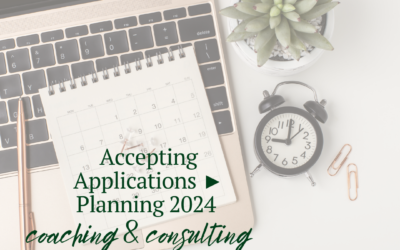Often we’ll listen to someone without really hearing him or her. In the process, we miss opportunities to connect with that person–and even risk making him or her feel neglected, disrespected, and resentful.
Would you agree that it is getting harder and harder to focus and are you looking to improve your listening to ensure your relationships are blooming?
Are you waiting for your turn to speak when you listen?
There are 3 levels of listening that I teach in one of my workshops:
Listening
Active Listening
Contextual Listening
Let’s work on an exercise that helps you express active interest in what the other person has to say and make him or her feel heard—a way to foster empathy and connection. This technique is especially well-suited for difficult conversations such as arguments with a spouse and can also be used for expressing support. Positive Psychology research suggests that using this technique can help others feel more understood and improve relationship satisfaction.
Are you ready to try something to help you become a good listener?
Time Required:
10 minutes/day for at least one week.
How to Do It:
Find a quiet place where you can talk with a conversation partner without interruption or distraction. Invite him or her to share what’s on their mind.
As he or she does so, try to follow the steps below.
You don’t need to cover every step, but the more you do cover, the more effective this practice is likely to be.
Paraphrase. Once the other person has finished expressing a thought, paraphrase what he or she said to make sure you understand and to show that you are paying attention. Helpful ways to paraphrase include “What I hear you saying is…” “It sounds like…” and “If I understand you right….”
Ask questions. When appropriate, ask questions to encourage the other person to elaborate on his or her thoughts and feelings. Avoid jumping to conclusions about what the other person means. Instead, ask questions to clarify his or her meaning, such as, “When you say_____, do you mean_____”?
Express empathy. If the other person voices negative feelings, strive to validate these feelings rather than questioning or defending against them. For example, if the speaker expresses frustration, try to consider why he or she feels that way, regardless of whether you think that feeling is justified or whether you would feel that way yourself were you in his or her position. You might respond, “I can sense that you’re feeling frustrated,” and even “I can understand how that situation could cause frustration.”
Use engaged body language. Show that you are engaged and interested by making eye contact, nodding, facing the other person, and maintaining an open and relaxed body posture. Avoid attending to distractions in your environment or checking your phone. Be mindful of your facial expressions: Avoid expressions that might communicate disapproval or disgust.
Avoid judgment. Your goal is to understand the other person’s perspective and accept it for what it is, even if you disagree with it. Try not to interrupt with counter-arguments or mentally prepare a rebuttal while the other person is speaking.
Avoid giving advice. Problem-solving is likely to be more effective after both conversation partners understand one another’s perspective and feel heard. Moving too quickly into advice-giving can be counterproductive.
Take turns. After the other person has had a chance to speak and you have engaged in the active listening steps above, ask if it’s okay for you to share your perspective. When sharing your perspective, express yourself as clearly as possible using “I” statements (e.g., “I feel overwhelmed when you don’t help out around the house”). It may also be helpful, when relevant, to express empathy for the other person’s perspective (e.g., “I know you’ve been very busy lately and don’t mean to leave me hanging…”).
What are the reasons this works?
Active listening helps listeners better understand others’ perspectives and helps speakers feel more understood and less threatened. This technique can prevent miscommunication and spare hurt feelings on both sides. By improving communication and preventing arguments from escalating, active listening can make relationships more enduring and satisfying. Practicing active listening with someone close to you can also help you listen better when interacting with other people in your life, such as children, co-workers, or roommates.
Inviting you to see all of the amazing articles inside BellaMia .
At BellaMia, we believe every women is beautiful and the mission is to change the lives of every person open to discovering their Soul’s Purpose and living a life they didn’t know was possible for them on an individual level.
Jennifer Jimbere
Your Partner in Possibility




